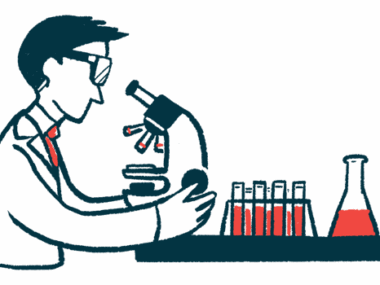FDA OKs clinical testing of oral treatment for pancreatic cancer
Verastem planning mid-year launch in US of Phase 1/2 trial of VS-7375
Written by |

The U.S. Food and Drug Administration (FDA) has given Verastem Oncology the green light to start clinical testing of its oral treatment candidate VS-7375 in people with advanced solid tumors — such as colorectal, non-small cell lung, and pancreatic cancers — that are positive for the G12D mutation in the KRAS gene.
Verastem now plans to launch a Phase 1/2 trial in the U.S. by about mid-year, with the potential to later expand globally, according to a company press release.
Meanwhile, Verastem’s development partner Genfleet Therapeutics is already running a Phase 1/2 study (NCT06500676) in China that’s testing VS-7375, also known as GFH375, in a similar patient group. The open-label trial is still recruiting, and expects to enroll approximately 390 people, ages 18-75, with solid tumors with a KRAS G12D mutation.
Genfleet will present data from the first part of that study at the American Society of Clinical Oncology (ASCO) Annual Meeting that starts later this month, but the biotech has already reported that the treatment appears safe and effective.
“We’re excited to advance the clinical program for VS-7375 in the U.S. and build on the initial dose escalation work conducted by Genfleet in China,” said Dan Paterson, Verastem president and CEO. Paterson noted that, to date, the experimental therapy “demonstrated … no dose-limiting toxicities across six dose levels, with partial responses achieved among multiple patients with both pancreatic and advanced lung cancers.”
Oral therapy aims to prevent growth, spread of cancer cells
In patients with pancreatic and other such cancers, tumor cells acquire new genetic mutations to help them survive and grow. A gene commonly affected is KRAS, which encodes the production of a protein of the same name that’s involved in cell growth and division.
Mutations in the gene can cause KRAS to become overactive, contributing to the uncontrolled cell growth that characterizes cancer. The most common KRAS mutation in human cancer is G12D, representing about a quarter of all mutations in the gene.
KRAS mutations are particularly common in pancreatic cancer, research has shown. G12D occurs in more than a third of people with pancreatic cancer, where it is linked to more aggressive disease and worse outcomes.
No treatments are approved to date that specifically target this mutation, per the researchers.
VS-7375 is an oral molecule designed to block the activity of the abnormal KRAS G12D protein that’s produced from the mutated gene. It is expected to help prevent the growth and spread of cancer cells. Tretment specifically aims to inhibit the protein when it is in both active and inactive states.
“We believe there remains a significant opportunity to improve on the efficacy seen to date with other KRAS G12D-selective agents,” Paterson said. “ VS-7375’s dual inhibition of both the on/off states has the potential to drive deep and durable cancer responses and allow for better combinability with other agents.”
In preclinical studies, the treatment showed strong anti-tumor activity, including in mouse models of pancreatic cancer, where it had better efficacy than standard chemotherapy. It was more effective when combined with the targeted therapy Erbutix (cetuximab) or avutometinib, an investigational therapy.
VS-737 showing safety, early efficacy in clinical testing in China
Genfleet’s ongoing study, which started dosing for its Phase 1 part last year, is assessing the safety and tolerability of VS-7375. The trial also will evaluate the therapy’s pharmacological properties and preliminary efficacy.
The first dose escalation part aimed to mainly assess the safety of various doses of VS-737 so the optimal dose could be selected for Phase 2.
No dose-limiting toxicities have been observed at any tested dose, according to the company, and partial treatment responses were achieved among patients with different tumor types, including pancreatic and lung cancers.
The Phase 2 part, which started dosing in February, has the main goal of determining the proportion of participants who achieve partial or complete tumor shrinkage — the overall response rate — with the selected dose.
For its own clinical testing, Verastem will select doses based on what appears efficacious from the initial data from the Genfleet trial. The Phase 2a part will evaluate the safety and efficacy of VS-7375 both as a monotherapy and as part of a combination regimen.
VS-7375 was originally developed by Genfleet. The two companies then struck an agreement that gave Verastem the exclusive option to license three of Genfleet’s cancer therapies, including VS-7375, after the successful completion of certain Phase 1 trial milestones.
Verastem selected VS-7375 as its lead program in 2023, and exercised the license for it early this year. That license would give Verastem development and commercialization rights outside of China, Hong Kong, Macau, and Taiwan.





